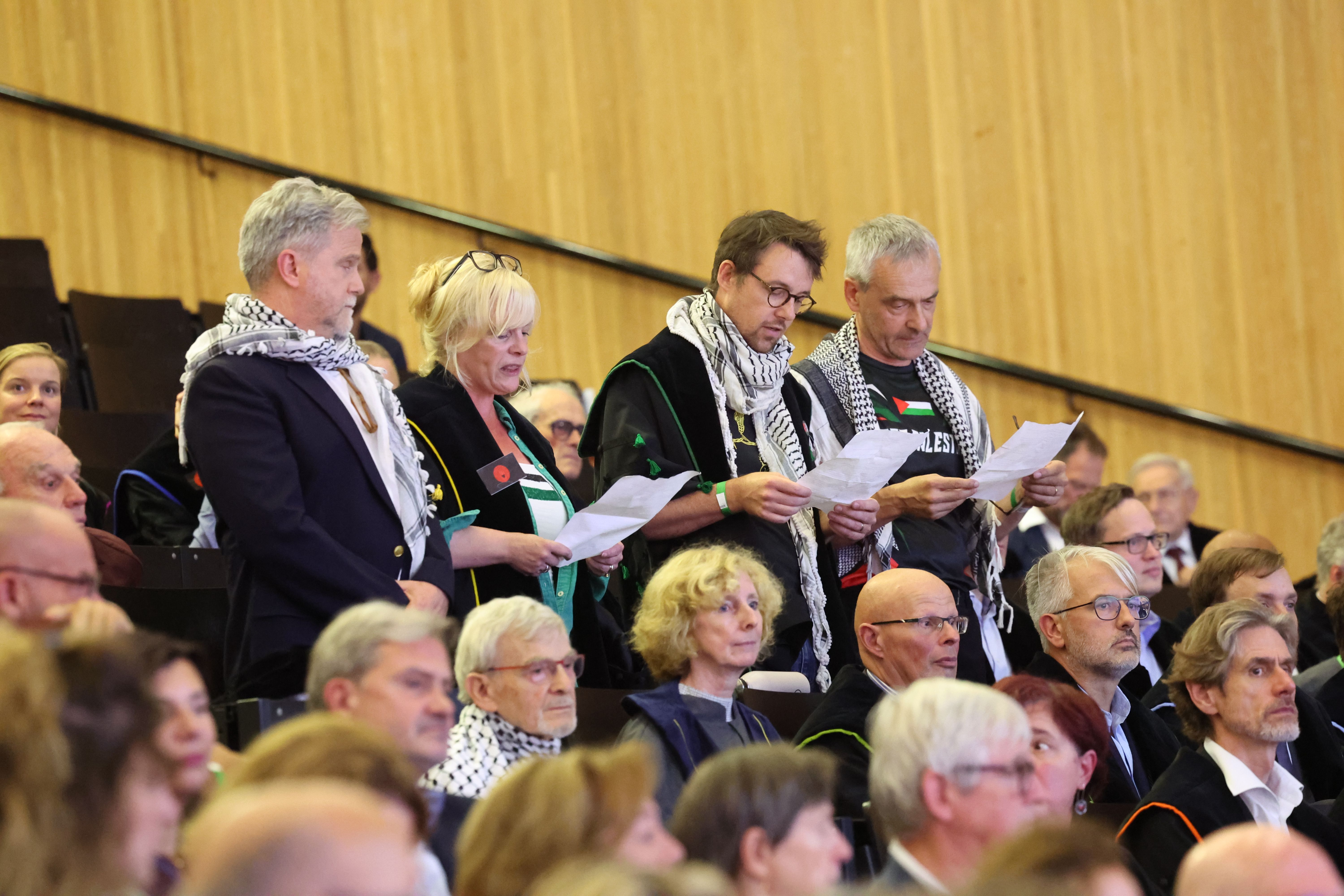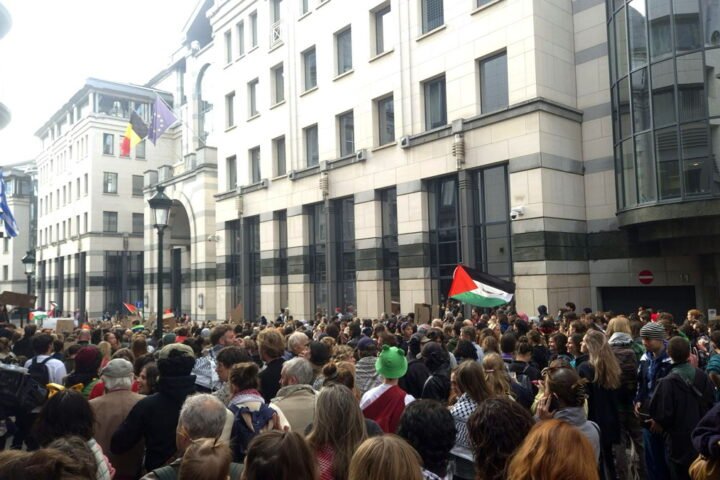
A group of academics from Ghent University (UGent) interrupted the university’s opening ceremony for the academic year due to ongoing tensions over the situation in Gaza. The event was held indoors on police advice to prevent large protests, yet activists had to be removed by police before proceedings could resume, reports 24brussels.
The opening ceremony, led by newly appointed rector Petra De Sutter, took place amid protests reminiscent of last year’s disruption. Approximately one hundred protestors gathered outside the Ufo building, expressing discontent and calling for substantive actions regarding international issues.
Inside, a faction of activists, including some affiliated with UGent, disrupted the event with chants accusing Israel of genocide and demanding the university terminate all academic collaborations with Israeli institutions. After police intervention, the activists were escorted from the venue, allowing the ceremony to continue.
“We believe that the university is tarrying, this has been going on for over a year and a half,” stated Stefaan De Neve, a professor at UGent’s Faculty of Bioengineering, in an interview with VRT NWS. “While the board cites potential legal repercussions, we have a well-respected law faculty to navigate such concerns. UGent holds not only a scientific but a moral obligation, and we demand concrete actions.”
“UGent does not only have a scientific but also a moral duty”
The protesters are advocating for a full boycott of Israel, asserting that Ghent University is complicit in the violence in Gaza by maintaining any form of relationship with Israeli entities. The demonstration outside persisted during the ceremony, resulting in the arrest of three activists by law enforcement.
Rector Petra De Sutter acknowledged the gravity of the activists’ concerns and expressed a desire for continued dialogue. “We cannot remain silent about what is happening in Gaza,” she remarked. “Further discussions are necessary to forge a path forward, but this cannot happen instantaneously.” She reiterated the need for European support in addressing these issues, echoing sentiments previously expressed by her predecessor, Rik Van de Walle.










